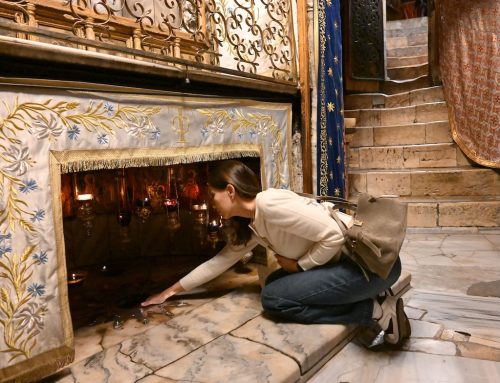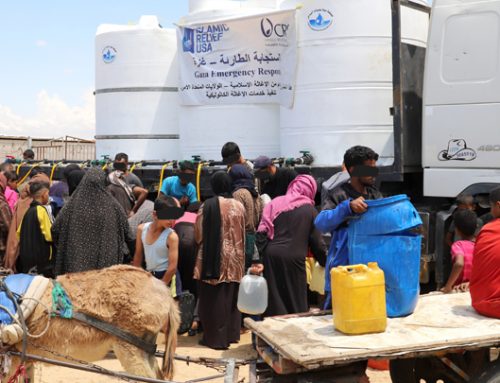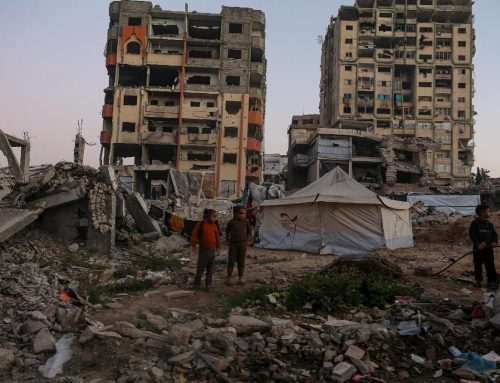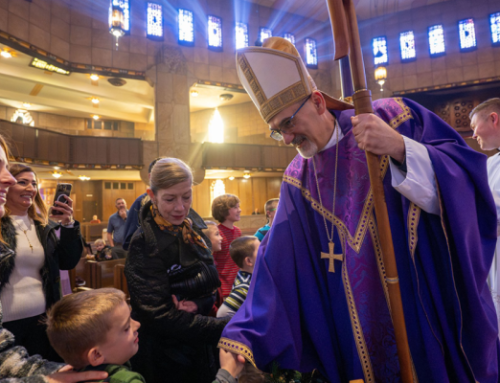Lent begins today. It is a time of prayer, penance and fasting. Like Jesus, we go into the desert to be more intensely in the presence of God, in order to adore, contemplate, and better accept the abundant life that God grants us at all times.
1. Lent begins today. It is a time of prayer, penance and fasting. Like Jesus, we go into the desert to be more intensely in the presence of God, in order to adore, contemplate, and better accept the abundant life that God grants us at all times. The Sunday gospels during Lent this year invite us to meditate on the temptation, the transfiguration, the money changers in the temple, the fact that “God so loved the world,” and the ascent of Jesus to Jerusalem before his Passion.
In meditating on God’s word in these gospels, we note that our life is a constant struggle to continue on our journey in God’s presence. The struggle involves making every moment of our lives moments of grace and transfiguration, moments in which we constantly purify the temple of our heart in order to become more aware of God’s love for us and to make of our life an ongoing ascent to Jerusalem where we can share in the sacrifice that saved us all, and where, in turn, we can extend our and to everyone, open our heart to all, and announce God’s salvation and resurrection.
2. The Holy Father, in his Lenten message this year, chose to speak about the poor and development. He reminds us of “the cry of the multitudes longing for joy, peace and love.” He reminds us of the human realities marked by “the desolation of misery, loneliness, violence and hunger that indiscriminately afflict children, adults, and the elderly.” To help us cope with this evil, he reminds us that “God does not allow darkness to prevail.” Quoting Jean-Paul II, he says: “there is a divine limit imposed upon evil, namely mercy,” and with mercy, the capacity to love and do the good that God placed in the heart of each of us.
Moreover, his first encyclical was dedicated to the various aspects of love both in the intimate life that unites an individual to God and to neighbor, and in society where love expresses itself by actions and development projects.
3. Our situation here in Jerusalem and in the entire region is part of the Pope’s message when he speaks of fear, anxiety, insecurity, and a search for justice, peace and reconciliation which remain a distant mirage. The Palestinian elections brought forth new leaders who are assuming responsibility for our destiny. We await the Israeli elections to see who will be responsible for our fate. In this context, Lent reminds us that, as we walk in the presence of God, we are walking with all other human beings, whoever they might be. On their faces, we see God’s image. With all of them, we share the joys and sufferings of life and continue to build our society, as we become more and more aware of the capacity for good and for love that God has placed in each of us. For that reason, Christians must not weaken and must not be afraid.
There are many poor among us who are in difficult situations. Present realities deprive them of freedom and of adequate means for managing their daily life. They do not succeed in renewing their faith and their hope through a real communion with their parish.
4. The purpose of our Lenten message is to focus attention on the role of charity in our life as a Church. It is true that we are a poor Church that receives from others, but we must remember that we also have the capacity to love and therefore to give. Our Caritas – Jerusalem is an organization that receives. It should also become the Caritas of a Church of Jerusalem that knows how to organize the charity of its own believers, rich and poor alike, so that they too can learn how to give. A re-education is needed to teach Christians in the Holy Land, even when they are living in need and in poverty, how to recognize and live the richness of the communion that existed in the first Church of Jerusalem: “The community of believers was of one heart and one mind. None of them ever claimed anything as his own; rather, everything was held in common. Nor was there anyone needy among them” (Acts 4, 32.34). Christians must overcome their individualism and look beyond themselves, their family and their relatives to embrace the entire parish, and even all of society.
Those among us who say that they already give to charity must go further and learn to give more, to live communion, and to “grow and grow up together” with all of one’s brothers and sisters, so that no one in the community is left wanting, alone, or suffering from discrimination.
5. Some ask: how should we fast? Should we follow custom or the Church’s new legislation? We must follow both custom and the law. But we must first understand the purpose of fasting, which is to turn us back to God, to make more place for God in our lives, and, with him, to build our community. When God is present, when he is with us, there is no reason to remain perplexed, to be afraid, or to complain. Saying that God is with us means filling ourselves with his Spirit, with his strength, and with his love. It means facing all of the everyday realities in both our private and public lives. Our love for everyone without distinction will keep us from transforming our faith and our life of communion with our community into denominationalism, or religious individualism, or aggressive fanaticism. “Make for yourselves a new heart and a new spirit,” says Ezekiel (18, 31). We must strive for this. We must renew ourselves in spirit in order to become ever-more capable of accepting the life God wants to give us all.
May the Virgin Mary accompany our fasting and our prayer and teach us to transform all of our life into a communion of divine life really lived with our parish, and into a love that opens us onto all of our society. May Almighty God bless you, the Father, the Son and the Holy Spirit. Amen.





